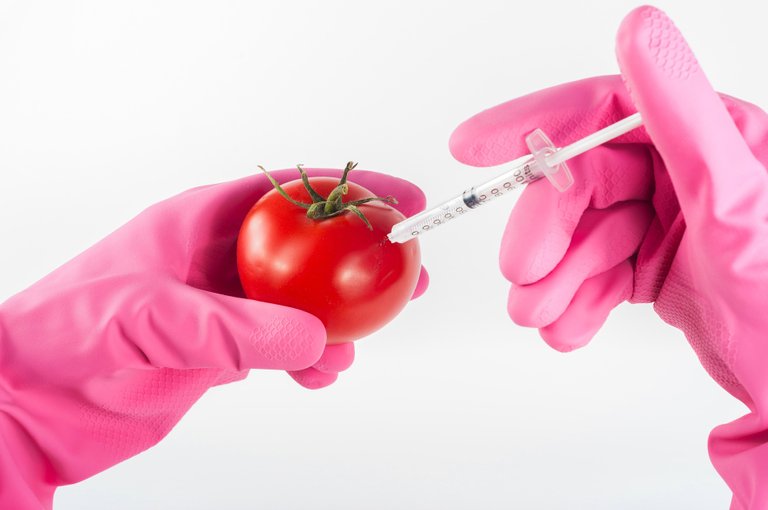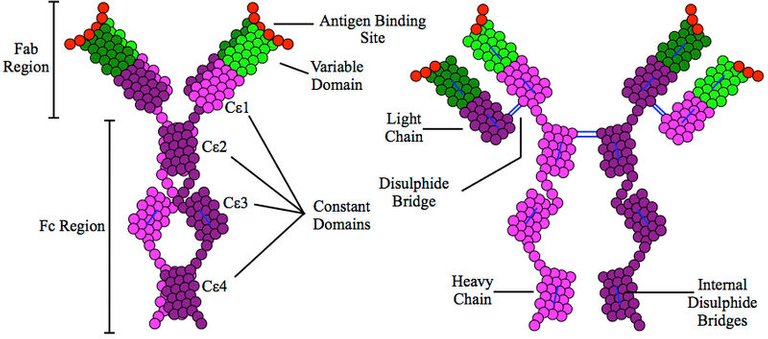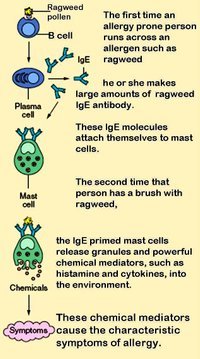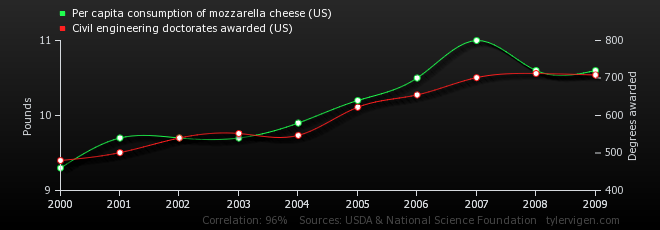"I've got allergies out the wazoo, and I'm worried that they'll take genes out of corn and ruin more foods for me." I'm paraphrasing, but this was an interesting point @phoenixwren raised in response to my gloriously titled corn snot post.
I've been fortunate that neither I nor anyone close to me suffers from severe food allergies, so that issue is not something I've really considered. After reading, it looks like a lot of other people out there are interested and there's a lot of good and bad science (and interpretations thereof) flying around.
It was interesting enough that I decided to make this a full article instead of a reply. If you like seeing stuff like engaged comments leading to (hopefully) quality discussion I encourage you all to pick one of @phoenixwren's comments from within the payout period1 and upvote the heck out of it, ideally letting them know why.

Obligatory disclaimer and disclosures
Before I begin, just note that while I have training in molecular biology, I'm neither a dietitian nor a medical professional.
Also, wow, I knew people were concerned about GMOs but I had not fully realized how much vitriol is out there until I started reading up. I assure you that I do not work for Monsanto nor do I intend to. Given that the biggest issues in my household involve answering questions like whether or not we can afford the extra buck this week for the 'good' peanut butter2 , it's a safe bet that I'm not getting paid off.
Part of my training as a scientist and engineer is to read and think critically - I have done so to the best of my ability here and do not think I have been 'fooled' by big food nor have allowed my biases to unduly discount arguments from GMO critics. I look forward to all the discussion that any GMO stuff seems to engender, I ask only that people keep it civil.
Basic grounding in proteins, GMOs, and allergies
Before I can write sensibly about this stuff, it's important that we have a few key facts.
Genes encode proteins. When we alter genes, we alter which proteins are made
There's a thing called the central dogma of biology. It states that DNA gets transcribed into RNA then RNA gets translated into proteins. Moreover, the reverse does not happen.
There are lots of cool caveats and exceptions which we should bear in mind but altering DNA to make proteins is the crux of genetic engineering. We may be interested in the protein itself or the product of a reaction it catalyzes.
Point One: Genetic engineering involves deliberate attempts to create specific, predictable proteins.

What is an allergy, exactly
I found out a lot of really neat things about allergies while reading up for this article. First, although getting an allergy diagnosed and determining its source can be a struggle, the mechanisms of an allergic reaction and what causes it are well defined. If you remember any biology stuff about your immune system, you probably remember the word antibody - they are essentially smart tags which get the attention of various parts of your immune system.
We mammals have a special kind of antibody called IgE. This little molecule is hugely important for fighting off malaria, other parasites, and maybe even cancer. IgE coats special Cells of Doom called mast cells and if it recognizes a foe (be it a parasite or pollen), the mast cells release all sorts of fun chemical weapons like cytokines and histamines.

Yep, histamines. If you're like me, you probably recognize that from the word anti-histamine, as in the stuff we take when we have allergies. In addition to fighting off baddies, histamines are a lot of what makes you feel terrible during an allergy.
Now, remember, none of this happens if the IgE doesn't 'recognize' the allergen. The mechanisms of recognition and sensitivity are beyond the scope of this discussion, but they are why some people will die if they eat a peanut while others will not.3 For those among us who do suffer from food allergies, it's because the IgE recognizes a protein associated with that food. In fact, 90% of the food allergies in the US are related to a handful of proteins from 8 foods. Which brings me to...

Point Two: Food allergies are a specific response to particular compounds, often proteins. refs: 1,2,3
What does that mean for GMOs and food allergies?
Given those two points, and so long as we aren't deliberately altering the food to produce allergens4, it is unlikely that a GMO food will trigger allergies if you are not allergic to its non-GMO counterpart. However, that's a very superficial analysis and there are a few 'yes, buts' that should be considered.
Yes, but... what about producing stuff that's not quite what you planned on
This issue crops up mostly in two cases: post-translational modification and mutations.
Post-translational modification is one of those issues which complicates point one. A protein can change after translation; it may be chopped, spliced, and decorated by the organism. Of particular concern here is that these modifications vary from organism to organism. The big deal here is the protein you want may not be the protein you get.
There's a few safeguards against this leading to allergies, some logic-based and some test-based.
First, people are not putting genes into crops for the fun of it - the proteins they encode have a specific intended purpose. Unforeseen modification will probably lead to the protein not doing what you want, and that product either won't go to market or the modification will be fixed.
Second, as a matter of development and quality control, the proteins themselves are sequenced. It will be come quickly apparent both if an unintended change has occurred and we can use those sequences to see how close the expressed protein is to known allergens.
Third, it appears that most food allergens are very specific proteins from a few classes. It is exceedingly unlikely that modifications to an unrelated protein will make it suddenly become an allergen.
Finally, there are a whole battery of tests (which you can read about, thanks to open access!) which GMO foods are subjected to specifically to test for allergic reactions.
Briefly, these tests are of three classes:
- testing in the blood serum of people with existing allergies and checking for a reaction
- checking the structure of proteins against known allergens, like we discussed above
- checking to see if the protein resists digestion, which is a hallmark of many food allergies
Mutation is the other complication leading to 'weird' proteins. This may be either natural mutation or part of efforts to evolve better proteins (site directed mutagenesis and directed-evolution). In all of these cases, the same safeguards still apply.
It also bears mentioning that the mutations seen in GMOs, particularly when intentional, are much, much more predictable than those which are produced by exposing seeds to chemicals and/or radiation in mutation breeding, which has produced over 1000 varieties of food crops.

Yes, but... what about proteins we don't know cause allergens
This arises both because there's almost certainly food proteins out there we don't know are allergens and because we're inserting genes from organisms we don't normally grow as crops.
It's difficult to predict beforehand if a protein will be an allergen, but the tests I've mentioned before can catch them before they get to market. To my knowledge, there is no confirmed example of this happening.
Yes, but... inadequate tests
Here, I have to agree that the tests can always be improved.
A major example of testing is the Brazil nut case - soy beans were modified with some Brazil nut genes and before they made it to market were tested and shown to cause severe food allergies. First point, the title of the article is horribly misleading, and shame on the author and editor. Second, I find myself agreeing with Dr. Pauli's statement from the above article:
"The study shows that caution is needed, but that we are on course as far as regulations go," [...] "Industry is following our guidance and essentially has been notifying us about what it is doing, regardless of whether it is required or not."
My issue is that I don't trust industry to self-regulate and we should always be improving our test methods.
I would also argue, however, that there is no such thing as a perfect test. GMO crops are subjected to stronger tests than novel non-GMO foodstuffs (Kiwi), and that holes in testing appear to be filled as weaknesses are discovered. It comes down to potential risk, which I'll get to later.
Yes, but... non-protein allergens
Proteins, proteins, proteins. There are non-protein molecules which can cause allergic and pseudo-allergy reactions, like codeine, nickel, and penicillin. The issue here is that it's a lot harder both to predict their production and likelihood as allergens. It is however, fairly easy to determine if they cause an allergic response and the nature of the testing done for protein allergies should catch those as well.
Yes, but... correlation of allergies to GMOs
Food allergies are probably increasing, but it may also be an artifact of increased testing and reporting. If the prevalance is increasing, the reasoning goes that is may be due to a correlated increase in GMOs. However, this is only a correlation, and a casual, almost anectdotal one at that. I have seen no rational evidence of a causal link. In fact, no one is quite sure why allergies may be increasing, but the rise in other, non-food related allergies points to something else.
I am aware that 'no causal link' was also one of the first defenses of both tobacco companies and climate change deniers. The difference, so far as I can tell, is that in those cases, there is a preponderance of supporting evidence and definite theory-supported mechanisms. In the case of food allergies I am not aware of a sufficiently strong set of evidence upon which to infer causation.
The link between food allergens and GMOs is less outwardly spurious than the link, pictured below, of "why encouraging people to buy mozarella will help me finish my dissertation". I could be wrong, but I would not bet on it.

So, there's a ZERO percent chance?
Heck no. I would be a terrible scientist if I thought much of anything was 100% likely or unlikely5. However, my personal stance is that the probability that you're going to have an allergic reaction to a GMO food is much, much lower than that chances of having a reaction due to contamination somewhere during food production, transport, storage, and processing. In fact, the only direct link between GMOs and allergies I could find was research on using genetic editing to eliminate allergens in peanuts - which means that some of you may also be able to enjoy the Good Peanut Butter soon!
Footnotes
1. The originating comment is beyond payout, since I'm a slow-ass writer.
2. Peter Pan Honey Roast Crunchy, for the curious. I have no affiliation with them,other than that an embarrassingly high amount of the carbon of which I am currently composed was probably made by them. I half-seriously considered adding a wishlist link but decided it was déclassé. I do encourage you to buy some and donate it to your local food bank and make someone's day.
3. Well, I won't die from an allergic response, but I do have an unhealthy love of PB sandwiches as a midnight snack. Damn the 'good' peanut butter and caloric surpluses.
4. We actually have a really great database of known food allergens which we can check.
5. Well, I might be a good Sith scientist.
side note: Here's a direct quote from @phoenixwren, "Like honestly, that's my biggest GMO question, and I can't find diddly squat about it when I've looked." Consider that an intelligent, motivated member of the public can't find information they need, even though the relevant research was probably supported by their tax dollars and they were stymied even when taking pains beyond what a normal citizen would to use legal methods to circumvent journal paywalls. Make of that what you may.
Nice post with pictures and all.
For me the bottom line is what are they modifying the plants to be?
One answer is presently they are being modified to survive specific herbacides. This means the crops can be doused with said herbacides.
So is my "food allergy" due to genetic manipulation of crops, or is it that I am simply having adverse reactions to the herbacides. Through my own emperical data, and after a years worth of visits to a dozen medical professionals and specialists, including several severely invasive diagnostic procedures, I found it to be the latter.
I do not pretend to know how to gmo a plant or animal, so i have to rely on peer reviewed data. Right now, there isn't enough independent research proving anything but what big ag and their money want us to believe. So i dont trust any of it. For me the test is, does it make me ill. And for all processed and gmo'd food, the answer is yes.
Since changing my diet to exclude all this "safe foods" I have regained my health, better than ever.
I think ultimately we will master gmo, but until then I am opting out of being a ginea pig.
Impressive to this this type of comment from a new user.
I commented before with a link to my own article if you want to learn more about GMO's.
The science I stumbled across said that there are only very small trace amounts of herbicides in the edible plant and that this should not be a problem, but of course I can't rule this out.
Basically your idea is what the European Union is trying, to prolong the ban until we know for sure that it is good or not.
Cheers!
Hey @thrunavulax
Here's a tip for your valuable feedback! @Utopian-io loves and incentivises informative comments.
Contributing on Utopian
Learn how to contribute on our website.
Want to chat? Join us on Discord https://discord.gg/h52nFrV.
Vote for Utopian Witness!
Thank you for this! Now I have a bunch of tabs open again, lol.
That was totally a slogan up on the wall when I worked at National Jewish Health (a hospital famous for treating allergies among other things, but I didn't work in the allergy department). ;)
Admittedly I haven't looked in a long time. I think I did when I first had all the testing done and was learning how to avoid the myriad allergens and trying to figure out ones that were NOT on the typical tests. For instance, I drink a protein shake every morning, right? I had switched over to a brand that was pretty basic in order to try and avoid allergens, and I was still having a reaction. I was stymied. Upon googling, I came across some article that said, if you're allergic to ragweed (I am), you might (but not necessarily) be allergic to stevia (which was in the protein shake). So I went and got the from-scratch ingredients so that what I was drinking was the same except I just replaced the stevia that was in the pre-mix with regular cane sugar, and lo: no more reaction every morning. So apparently, stevia, but what doctor is going to test for that? @.@
Yep, I'm allergic to the -cillins and nickel is my arch nemesis. I have to follow the low-nickel diet (which eliminates a ton of foods), or I have a permanent rash. Bah!
Anyway, thanks for the balanced look at this, allowing me to revisit and find more info than when I tried before!
Hey @phoenixwren
Here's a tip for your valuable feedback! @Utopian-io loves and incentivises informative comments.
Contributing on Utopian
Learn how to contribute on our website.
Want to chat? Join us on Discord https://discord.gg/h52nFrV.
Vote for Utopian Witness!
You could still go for a protein shake without any sweeteners. I am not a heavy user of proteins but when I do, I look for those having the least in them.
Just whey if possible :D
Cane sugar isn't a problem for me. And it would taste horrid without it, the way I make shakes. ;)
Posted using Partiko Android
Interesting information – thanks for making it digestible (no pun intended) for non-experts in this field. I do have strong reservations against GMOs, mainly because I believe they have been used by certain multinationals to make their products resistant to the use of very strong pesticides, and ultimately for profit and control. I have other concerns about, for example, using GMOs to eliminate certain biological aspects of species that may appear harmful in one respect, but that may also serve a valuable purpose in nature that has not been considered or understood.
But having said that, I don't personally see any connection between GMOs and food allergies.
My personal belief, based on what I've read and experienced, is that food allergies and intolerances are more likely to be triggered by overuse of certain antibiotics. And of course there are probably other reasons too. Funnily enough I discussed this very point yesterday in comments on a post by @sultnpapper.
Hey @natubat
Here's a tip for your valuable feedback! @Utopian-io loves and incentivises informative comments.
Contributing on Utopian
Learn how to contribute on our website.
Want to chat? Join us on Discord https://discord.gg/h52nFrV.
Vote for Utopian Witness!
I have written an article before on that -> https://steemit.com/steemstem/@alexdory/glyphosate-or-monsanto-s-roundup-a-scientific-and-unbiased-point-of-view
The conclusion is that GMO's are not worse than any other products and the pesticides for GMO's are not worse than any other pesticides. If you have the means (availability and cost), go for BIO/Green products. If not, the GMO's will probably not harm you more than non GMO's sprayed with traditional pesticides :)
And the big companies are the usual living-at-the-edge-of-legality companies that you can find in any industry. Nothing special about that. Apart from using their incredible wealth to lobby here and there, it seems that they actually left the market to do the choosing. The clients actually choose them and I would probably use them too. For the record I would like to start my owm BIO/Green farm in about 10 years after I get tired of programming :D
The rest is a lot of pseudoscience, conspirationism and fake news that is not seen in any of the studies I have found.
Cheers!
Thanks for your comment. But saying
doesn't seem very unbiased to me.
I will read your article later though - I'm rushing out for the day.
After you will read, you will understand better.
What I am saying is that, in the media, most of the bad claims associated with GMO's are not backed by studies, while all the studies I have read show no evidence of those claims.
You can't have two realities so you must decide if you believe the media or the studies :D
By all means, don't take my word for it, this is what I like about science!
I've read your article now, and it is really excellent - very well researched and, as you say, unbiased. You probably won't be surprised when I say that I still hold the practices of Monsanto/Syngenta in very low regard.
One thing that particularly disturbs me about GMOs is that they can be invasive - once the genie is out of the bottle, it's difficult to put it back in. I'm happy for others to enjoy GMO food while I eat my organic food, but in some cases, cross-contamination is very difficult to prevent and detect.
However I live in Scotland, so if I buy local food there is not much chance of it being GMO.
Im glad to read this post.
People esp. Environmentalist that goes against should understand the concept of Genetic engineering/DNA modification first before going against it. GMO is the best alternative to food insecurity that the world can think of now...
HA!
I appreciate your point of view. It is exactly how the world is right now. I have environmentalist friends working/running an NGO who bash GMO's day in an day out. They are doing it to rally people, even if the science is neutral or against them, they say it's a good way to round up people for their other activities as well.
So it seems that some "good" NGO's prefer manipulating the donors for a better cause. The wrongness in that is..
Congratulations! This post has been chosen as one of the daily Whistle Stops for The STEEM Engine!
You can see your post's place along the track here: The Daily Whistle Stops, Issue 251 (9/08/18)
Nice work! There is so much misinformation on GMOs that explanations like this are sorely appreciated. In fact, this reminds me of a recent GMO article I saw that might be worthy of a write up.
Anyways, I'll try to buy some mozzarella next time I'm at the store to spur on your dissertation. Hopefully you'll be able to buy the good peanut butter one day :P
I'm glad you liked it and you've now gotten me curious about the article you saw.
And, remember, even if the correlation is spurious, you'll still end up with mozarella. Thanks for referencing the good peanut butter.
FOR TSE:
This is one of the best things I've come across all night. Love your sense of humor.
Thank goodness! I was worried I was being a little too silly, but just couldn't resist.
I remember "doomsday properties" that cell phones will cause cancer and annihilate the human race. I heard that clones will conquer the world. That depleted uranium will destroy my nation and that GMO will destroy both Mars and Venus, not to mention the Earth.
As we can see, none of the above happened, because - science...
Congratulations! Your post has been selected as a daily Steemit truffle! It is listed on rank 10 of all contributions awarded today. You can find the TOP DAILY TRUFFLE PICKS HERE.
I upvoted your contribution because to my mind your post is at least 6 SBD worth and should receive 158 votes. It's now up to the lovely Steemit community to make this come true.
I am
TrufflePig, an Artificial Intelligence Bot that helps minnows and content curators using Machine Learning. If you are curious how I select content, you can find an explanation here!Have a nice day and sincerely yours,

TrufflePigWhen it comes to genetic modification, the most mentioned type is one that is mostly used in laboratories known as transgenics. This type has it's own risks as well as benefits. While most risks remain unknown on the long term, benefits are known already. On the course of evolution, most things are unknown.
Let's not forget about one subject to think about, there are natural influences on organisms themselves, even if they are GMO. Not limited to background radiation (patterns), mutagenic chemicals and spontanious mutations.
What genes would change if plants are GMO? And how would they change in the long term without any involvement of synthetic modification of genes?
This post has been voted on by the steemstem curation team and voting trail.
There is more to SteemSTEM than just writing posts, check here for some more tips on being a community member. You can also join our discord here to get to know the rest of the community!
Hi @effofex!
Your post was upvoted by utopian.io in cooperation with steemstem - supporting knowledge, innovation and technological advancement on the Steem Blockchain.
Contribute to Open Source with utopian.io
Learn how to contribute on our website and join the new open source economy.
Want to chat? Join the Utopian Community on Discord https://discord.gg/h52nFrV
Hi @effofex!
Your post was upvoted by @steem-ua, new Steem dApp, using UserAuthority for algorithmic post curation!
Your UA account score is currently 3.057 which ranks you at #9560 across all Steem accounts.
Your rank has improved 8 places in the last three days (old rank 9568).
In our last Algorithmic Curation Round, consisting of 271 contributions, your post is ranked at #36.
Evaluation of your UA score:
Feel free to join our @steem-ua Discord server
As a person with no PB allergy, I worry whether GMO PB designed to not cause allergies to people allergic to PB, will cause an allergy to people who are not PB-allergic.
But seriously, I think most people who are scared of allergies brought on by GMO, are basically thinking that the novelty of the protein itself will cause their body to become allergic to it, as if the body works by storing a database of 'safe foods' and rejecting anything that's not in that database.
Great article, as usual, and funny, as usual.